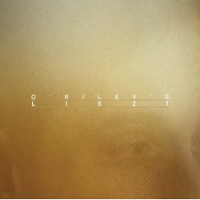Home » Jazz Articles » Extended Analysis » Christopher O'Riley: Christopher O'Riley: O’Riley’s Lizst
Christopher O'Riley: Christopher O'Riley: O’Riley’s Lizst
Liszt loved the drama of the solo piano recital and he often programmed his transcriptions of the contemporary repertoire into them. In these post-modern times, there exist precious few new transcriptionists, save for Jon Kimura Parker, whose Rite (Self Produced, 2013) breathed new air both into Stravinsky's The Rite of Spring and piano transcriptions.
Enter Christopher O'Riley, who, by all of his own media, is the piano enfant terrible of our time. First, there is "In the grand tradition of virtuosic pianists, Christopher O'Riley's showmanship and iconoclastic statis make him the Franz Liszt of our time." Indeed. Such fanfare would have made Liszt proud. Second, the title of his disc is O'Riley's Liszt. Liszt probably regrets not having titled his Wagner transcriptions as Liszt's Wagner. That would have kept everything in the family!
But it is here that the cheekiness stops, because O'Riley's performance of choice Liszt transcriptions blows the top off the conventional wisdom that piano transcriptions are just background music. O'Riley's Liszt is superbly programmed to demonstrate both Liszt's breadth of musical interest and O'Riley's considerable pianistic and dramatic chops. There is a complete creative package here just waiting to be discovered.
O'Riley's Liszt is a 2-disc set that highlights the best of Liszt transcriptions other than the Beethoven. Disc 1 is capitalized by two opera transcriptions: Mozart/Liszt—"Reminiscences de Don Juan," drawing inspiration and notes for Mozart's Don Giovanni and Wagner/Liszt/Moszkowski/O'Riley—Prelude und Liebestod from Tristan Und Isolde (O'Riley transcribing Moszkowski's transcription of Liszt's transcription of Wagner...got that?). The two remaining short pieces are "Spring Songs" by Schubert and Schumann. In all, O'Riley's playing is scintillating. He performs with a crazed confidence that lingers erotically on the edge of falling apart altogether only to be completed as Liszt certainly would have approved. The wow factor is pretty big here.
But it it the second disc where O'Riley runs the flag up the pole and fires the cannons and, on no better piece that Hector Berlioz's Symphonie Fantastique. Liszt loved to play "Marche au supplice," ending his concerts with the final falling note. O'Riley does the same and lives up to all of his accolades here, capturing Berlioz's nervous energy as interpreted by his friend Liszt. The "Un Bal" waltz is beautiful and fragmented as the march in "Marche au supplice" is hesitantly determined. This is a whirlwind performance that properly approximates the hubris necessary to transcribe and play this music.
Track Listing
CD1: Mozart/Liszt--Reminiscences de Don Juan; Schumann/Liszt--Fruhlingsnacht; Wagner/Liszt/Moszkowski/O’Riley--Prelude und Liebestod from Tristan Und Isolde; Schubert/Liszt--Fruhlingsglaube. CD2: Berlioz/Liszt--Symphonie Fantastique (Five Movements).
Personnel
Christopher O’Riley: piano.
Album information
Title: Christopher O'Riley: O’Riley’s Lizst | Year Released: 2013 | Record Label: Oxingale Records
< Previous
Terminal Stillness
Next >
Born to be Blue
Comments
Tags
For the Love of Jazz
 All About Jazz has been a pillar of jazz since 1995, championing it as an art form and, more importantly, supporting the musicians who create it. Our enduring commitment has made "AAJ" one of the most culturally important websites of its kind, read by hundreds of thousands of fans, musicians and industry figures every month.
All About Jazz has been a pillar of jazz since 1995, championing it as an art form and, more importantly, supporting the musicians who create it. Our enduring commitment has made "AAJ" one of the most culturally important websites of its kind, read by hundreds of thousands of fans, musicians and industry figures every month.



















